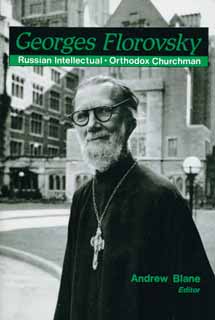
For years, one of the greatest Eastern Orthodox writers on the relation of the church, Bible, and tradition has been out of print for years. I am excited that in April of 2017, The Patristic Witness of Georges Florovesky is going to be released. I have an Eastern Orthodox priest spiritual director and wonderful friend. I am also discovering other wonderful Eastern Orthodox scholars and writers like recent converts to orthodoxy like Brad Jersak and Joel Edmund Anderson.
Chapter 3 of Joel's book, The Heresy of Ham, covers important issues like the living tradition of the church and defines issues of understanding little t traditions (non-fundamental Christian teachings) and big T traditions (fundamental core teachings of the Christian faith). Joel correctly points out the muddled confusion by Ken Ham's YEC (Young Earth Creationism) that blurs the traditions of scripture and the traditions of man together.
Joel briefly gives descriptions of the three great traditions of the historical Christian faith (Catholic,Church tradition, Protestant church tradition, and the Eastern Orthodox tradition). Joel seems to focus on medieval Catholicism in defining the Roman Catholic Church. He declares church tradition in the Catholic faith is church tradition as being "over" the Bible. Although that is not technically correct, for brevity sake, I think he is onto something that many Catholics during that time-frame did function as this even if that was not the official teachings of the church. The church at that time was plagued by superstition, ignorance, illiteracy and the like. This context does link his next thoughts to why the Protestant Reformation happened but I am not sure this truly reflects what the Roman Catholic Church has taught for all time and for all people when it comes to their understanding of church tradition and its dynamic relation to scripture.
Joel better reflects the Protestant rejection of going to the other extreme of the Bible over church tradition and the Bible alone "Sola Scriptura" which the reformers could easily place against church tradition. If the Catholic Church put authority in the magisterium and Pope, the Protestants put authority in human reason and the Holy Spirit to lead and guide individuals into the truth of God's Word. The dangers and divisiveness of the Protestant faith has become both obviously divisive and dangerous in todays political and religious conflicted world. Many Protestants function like history and church tradition do not matter at all (modern pop-evangelicalism) but more historically minded Protestants understand sola scriptura to mean more like scripture is primary over other authoritative writings rather than standing alone as the arbiter of truth by the individual interpreter.
Joel's preference obviously is Eastern Orthodoxy where the Bible is part of church tradition and stands in dynamic relationship working together rather than against these other areas. My own theological understanding is in agreement with both the Catholic and EO church views of the Church, Bible, and Tradition (with the Papacy being the big difference standing in-between these two oldest church traditions). Joel is spot on suggesting we should not pit church, Bible or tradition against each other but they all are important components of the living faith of the church today.
Joel ends his chapter showing how Ken Ham's core essential of YEC fails the test on all three accounts and literally fails the test of history. The Bible needs to be interpreted within the context of community and with all the saints throughout church history (especially the early church fathers), Joel wonderfully sums things up by saying a proper understanding of church tradition helps us in three ways today:
1. It guards against heretical teachings (like ancient heresies or modern ones like YEC)
2. It tells us what are the vital core theological issues (especially understanding capital T Tradition)
3. It reassures us that there is room for discussion, debate, and disagreement on a variety of topics that are not core theological issues.
No comments:
Post a Comment